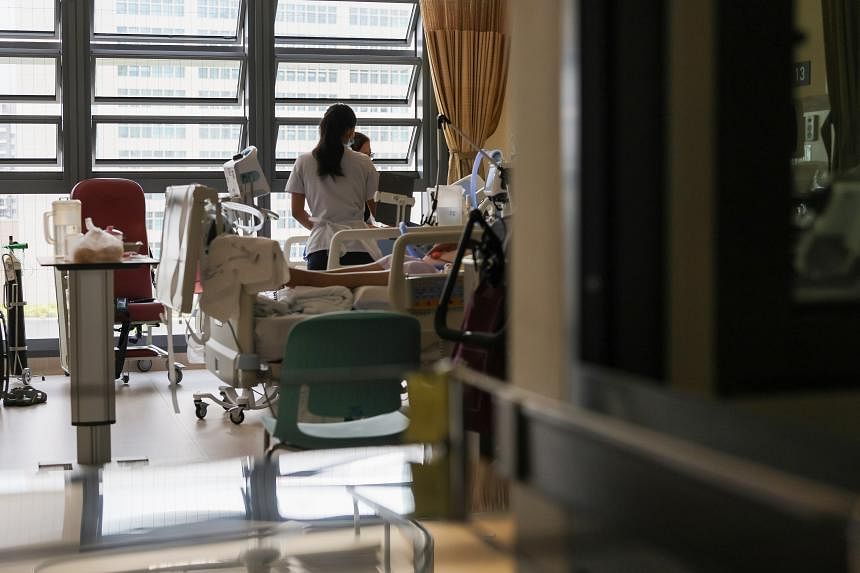SINGAPORE - Hospital patients who stay in a lower-class ward and then upgrade to a higher-class one will have to pay more for their stay in the heavily subsidised ward.
Health Minister Ong Ye Kung said in Parliament on May 7 that the Government has to discourage patients from selecting lower-class wards to secure more subsidies for more costly treatments – such as surgery and intensive care unit treatment – at the beginning of their stay and then switching to higher-class wards once the treatments are completed.
Many of these patients are not of lower income and could have chosen the higher-class ward from the outset, he said. That is why if a patient upgrades, the level of subsidies will be adjusted retroactively, he added.
Mr Ong was responding to questions from Mr Ang Wei Neng (West Coast GRC) and Progress Singapore Party Non-Constituency MP Leong Mun Wai.
The Ministry of Health recently addressed the issue of retroactive charging when a patient switches between a higher and lower-class ward in a Straits Times Forum page reply in April.
A reader had written in to say it was unfair that his elderly mother, who was admitted to hospital as a Class C patient, will be retroactively charged more for previous treatments received in the same admission if she upgrades to a single-occupancy room and becomes a Class A1 patient.
It meant that the bill for her earlier stay as a Class C patient would be retroactively adjusted to reflect her new Class A1 status, effectively doubling the amount payable, he wrote.
In its reply in April, the Ministry of Health said the current policy is meant to discourage patients from selecting lower-class wards to enjoy higher subsidies for more costly treatments and then upgrading to higher-class wards once these treatments have been completed.
As for patients who stay in a higher-class ward and then downgrade to a lower-class ward towards the end of their stay, they will receive subsidies based on the respective ward class, Mr Ong said in Parliament on May 7.
“This is fair. In fact, where the request to downgrade is due to unaffordability because of complications or unexpected additional costs, public hospitals will find ways to support these patients financially,” he added.


